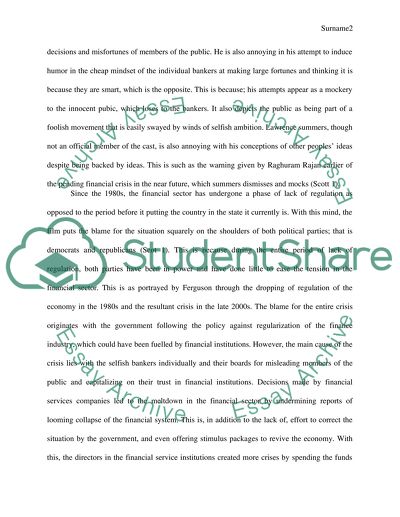Cite this document
(“Inside job Movie Review Example | Topics and Well Written Essays - 750 words”, n.d.)
Retrieved from https://studentshare.org/finance-accounting/1458333-inside-job
Retrieved from https://studentshare.org/finance-accounting/1458333-inside-job
(Inside Job Movie Review Example | Topics and Well Written Essays - 750 Words)
https://studentshare.org/finance-accounting/1458333-inside-job.
https://studentshare.org/finance-accounting/1458333-inside-job.
“Inside Job Movie Review Example | Topics and Well Written Essays - 750 Words”, n.d. https://studentshare.org/finance-accounting/1458333-inside-job.


